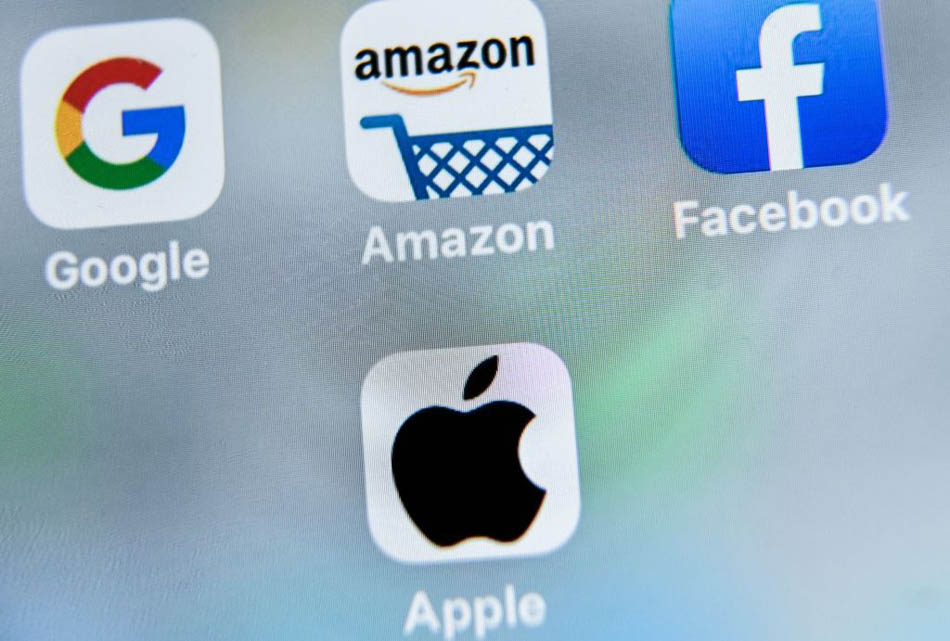Senate Should Vote to End Big Tech's Free Ride on Universal Service
Why it’s time for Congress to compel edge providers to do their bit to close the digital divide

The smarter way to stay on top of the multichannel video marketplace. Sign up below.
You are now subscribed
Your newsletter sign-up was successful
The time has finally come to require Silicon Valley giants to share an infinitesimal slice of their enormous profits to close the digital divide. On a bipartisan vote, the Senate Commerce Committee recently approved S. 2427, the Funding Affordable Internet with Reliable (FAIR) Contributions Act, which next heads to the Senate floor.

Last summer, U.S. Sens. Roger Wicker (R-Miss.), Shelley Moore Capito (R-W.Va.) and Todd Young (R-Ind.) introduced the legislation, which would direct the Federal Communications Commission to conduct a study into the feasibility of collecting Universal Service Fund (USF) contributions from internet edge providers, such as Google, Facebook and others.
“These companies have benefited from the connectivity the USF supports but have not yet had to contribute,” Wicker explained.
Despite the fact that the combined annual revenue of technology companies on Forbes's Global 2000 list climbed from about $3.3 trillion to a record $4 trillion over the last year, these wildly wealthy companies are still fighting to keep their coffers closed.
But America needs their help.
Also: Big Tech to FCC: Drop Inquiry Into Universal Service Fund Fees
If the $65 billion for broadband set aside by the Infrastructure Investment and Jobs Act (IIJA) is spent wisely, all Americans can be reached with a high-speed internet connection. The problem is that adoption challenges remain, and an ongoing source of funding is needed to support broadband affordability for rural and low-income Americans, as well as schools, libraries and rural healthcare providers over the long haul. This is the primary purpose of the Universal Service Fund, but its funding is on the fritz. In fact, a recent study by EconONE managing director Hal Singer and consultant Ted Tatos indicates the current USF mechanism is unsustainable and will fail to meet the needs of its target consumer base within the next five years. Meanwhile, the Affordable Connectivity Program (ACP), which was established by the IIJA to help low-income Americans buy broadband, is only funded to the tune of $14.2 billion. To keep it going, we will need either a new appropriation from Congress or USF will have to pick up where ACP leaves off, making contribution reform an even more urgent solution.
The smarter way to stay on top of the multichannel video marketplace. Sign up below.
Currently, USF is funded by requiring telecommunications companies to fork over a percentage of their interstate end-user revenues, which is known as the program’s “contribution factor.” It’s as old school as it sounds — a “tax” on “long distance” telephone calls. Even your grandmother would say this is outdated.
Given that older Americans and those living in older homes are far more likely to have landline phones, the reality is that the tax disproportionately impacts seniors and Americans with lower incomes. Among householders aged 75 and older, 75% have landlines in their homes, compared to less than 5% for householders under 25. And with fewer dollars being added to their personal bank accounts every month, the fees consume a greater portion of their incomes, as pointed out by a Government Accountability Office report.
What’s more, the USF’s revenue base is ever-shrinking, which can only be offset by the contribution factor ever-increasing. In 2019, just over 31% of U.S. households still had a landline, a steep decline from the more than 90% in 2004, 15 years earlier. In 2016, the fund was stretched to support broadband as well as phone service, so widening the contributions base to include broadband-related tech company revenues is a logical, fair and reasonable modernization. Drawing dollars from across the greater internet ecosystem, rather than from traditional phone service alone, could bring the contribution factor down to a small percentage that edge and internet service providers could tout as a business decision that would expand the ecosystem for the benefit of everyone.
America’s lawmakers aren’t the only ones who recognize the imbalance of Big Tech benefiting from broadband networks without backing them. The European Commission recently proposed the signing of a declaration of principles and rights underpinning digital transformation in the European Union, including “developing adequate frameworks so that all market actors benefiting from the digital transformation assume their social responsibilities and make a fair and proportionate contribution to the costs of public goods, services and infrastructures for the benefit of all Europeans.”
In South Korea, Big Tech and video-streaming companies generating 1% or more of total internet traffic, or those with at least 1 million users, pay a fee to support the provision of network capacity. So, while the Motion Picture Association, which represents streaming content providers like Netflix, Hulu, Disney Plus and others, is telling the FCC that expanding the USF contribution base to include them would “present significant implementation issues that would render such an approach unworkable," other countries have already worked it out.
Also: FCC's Carr: Make Big Tech Pay for USF Subsidies
Another potential solution for saving USF is tapping into huge internet-related tech company revenues through a digital advertising services fee. According to projections from Singer and Tatos, “Even if the current USF funding levels were increased to $17.5 billion annually (generously assuming a 75% participation rate by eligible, low-income households, and a $50 per month subsidy regardless of location), by 2029 the contribution factor on digital advertising would only reach 7.3%” — compared to a contribution factor today that’s greater than 25%.
As FCC commissioner Brendan Carr pointed out a year ago, “Ending Big Tech's free ride on the internet would represent a long-overdue return to the historic compact under which the businesses that benefit from a network pay their fair share for it.”
Fortunately for all Americans, this proposal is finally on track, thanks to the FAIR Contributions Act. Let’s hope a resounding “yes” is soon heard, once again, from both sides of the Senate floor. ▪️
Kim Keenan is co-chair of the D.C.-based Internet Innovation Alliance (IIA). Previously, she was the longest-serving female general counsel of the NAACP.
